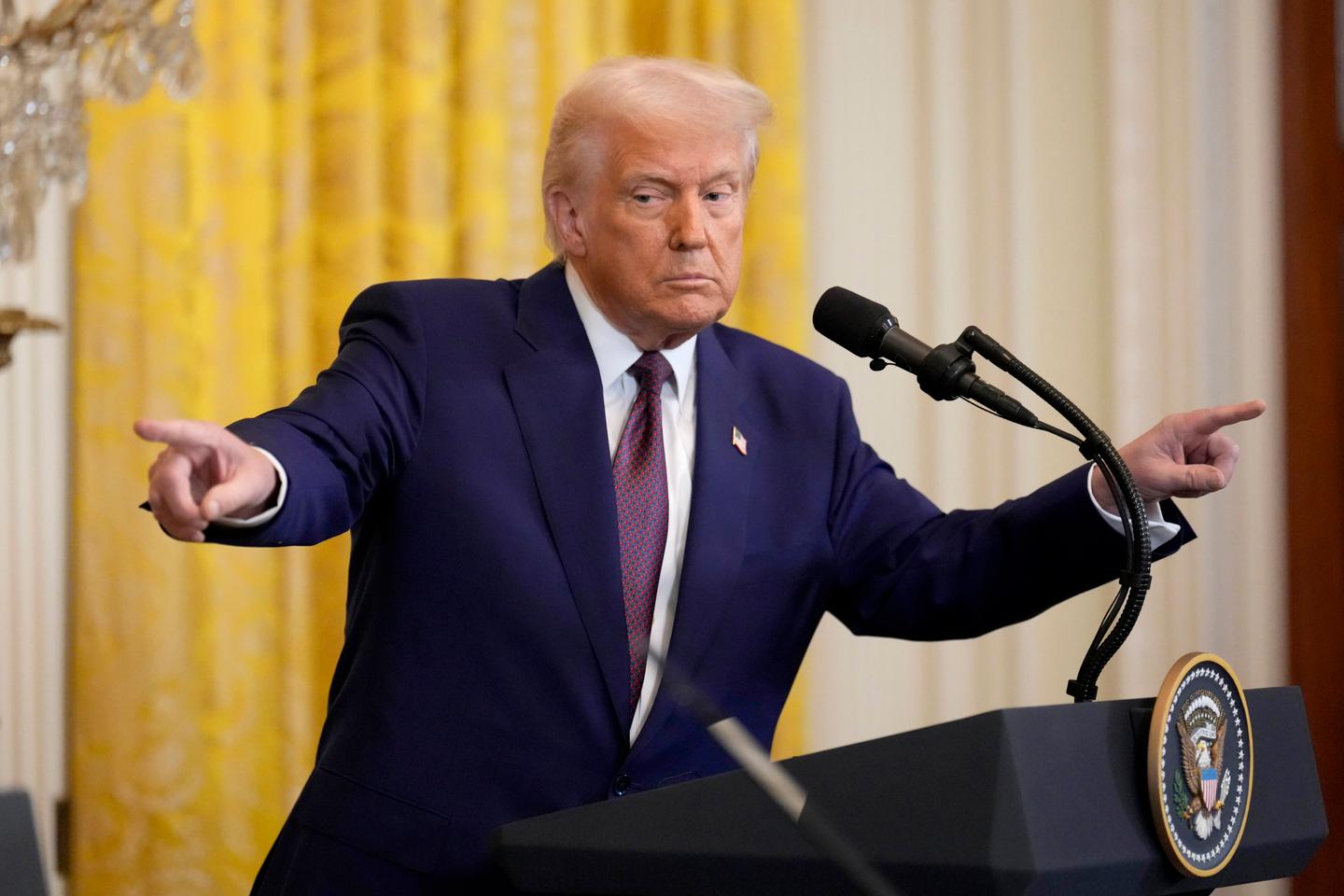


A new chapter in Donald Trump's protectionist gesticulating is being written. After tariffs on imports from Canada and Mexico, which were suspended, and after a 10% tariff increase on Chinese products and 25% customs duties soon to be applied to steel and aluminum, the US president announced, on Thursday, February 13, that he would impose "reciprocal tariffs" to restore "fairness" to trade relations between the United States and the rest of the world.
"They charge us a tax or tariff and we charge them the exact same tax or tariff. Very simple," he explained. Trump proceeds from the assumption that the US naively opened up its market while other countries set up trade barriers to entry, in the form of higher tariffs, subsidies or exchange rate manipulation. His response consists of applying eye-for-an-eye retaliation, in defiance of the rules of the World Trade Organization (WTO).
Contrary to Trump's paranoid convictions, the WTO's principles aim to adopt a system of differentiated treatment according to a country's level of development, as the poorest countries need more protection or preferential export conditions. Challenging this principle could have serious consequences for the most fragile economies, halting the economic catch-up process they had begun in recent years.
Establishing the law of the jungle
It is self-evident that China's status within the WTO is problematic. The world's second-largest economy is no longer a developing country, and should no longer benefit from the same differential treatment it enjoyed when it joined the organization. On the other hand, attacking the most vulnerable countries with the world's greatest power – on the pretext of reciprocity – would be tantamount to establishing the law of the jungle that the WTO had been supposed to prevent. The situation is all the more alarming for these countries as it comes on the heels of Trump's dismantling of the US Agency for International Development.
There has also been talk of applying customs duties to countries that levy value-added tax (VAT). This move clearly targets the European Union, as Trump has seen this tax as a barrier to American exports. The reasoning is absurd: VAT does not create any trade distortions, insofar as it applies to all products, whether they are locally manufactured or imported.
The way these measures will be applied will be revealed on April 1. Implementing them promises to be an extremely complex undertaking. It is not yet clear whether this represents an extortion method to obtain concessions from one country or another, or a policy end in itself. In the meantime, the US has simply added an uncertainty factor, based on a biased argument, the intended effects of which (reducing the US trade deficit, reindustrializing, and financing the budget deficit) are unlikely to come to pass.
On the other hand, the knock-on effects are obvious. A tariff acts as a tax on the American consumer, and inflation is likely to take off again, while, for the rest of the world, the effect will be recessionary. The protectionism advocated by Trump may be effective in electoral terms, but, in economic terms, it will only cause people to lose out.
